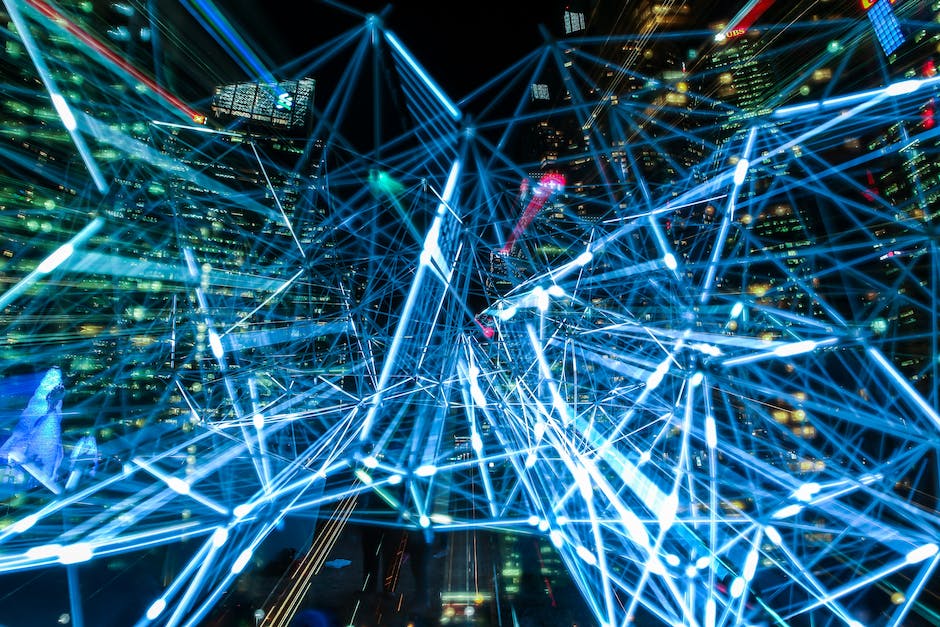Table of Contents
“Unlocking the Power of AI: Embrace the Future of Work”
Introduction
Artificial Intelligence (AI) is a rapidly advancing technology that has the potential to revolutionize various aspects of our lives, including the workplace. Understanding AI in the workplace is crucial as it can greatly impact job roles, productivity, and overall business operations. This introduction aims to provide an overview of AI in the workplace, highlighting its benefits, challenges, and potential implications for employees and organizations.
The Impact of AI on Job Roles and Responsibilities

Artificial Intelligence (AI) has become an integral part of our lives, transforming various industries and revolutionizing the way we work. In the workplace, AI has had a significant impact on job roles and responsibilities, reshaping the workforce and creating new opportunities. This article aims to explore the implications of AI on job roles and responsibilities, shedding light on both the positive and negative aspects.
One of the most notable effects of AI on job roles is automation. AI-powered machines and algorithms can now perform tasks that were previously done by humans, leading to the displacement of certain job roles. Repetitive and mundane tasks, such as data entry and basic customer service, can now be efficiently handled by AI systems, freeing up human workers to focus on more complex and creative tasks. This automation has the potential to increase productivity and efficiency in the workplace, allowing businesses to allocate their resources more effectively.
However, the rise of AI also raises concerns about job security. As AI continues to advance, there is a fear that it may replace human workers altogether. Jobs that are highly repetitive or require minimal decision-making could be at risk of being automated. This has led to anxiety among workers, as they worry about the possibility of losing their jobs to machines. It is crucial for organizations to address these concerns and provide support and training to help employees adapt to the changing landscape.
On the other hand, AI has also created new job opportunities. The development and implementation of AI systems require skilled professionals who can design, develop, and maintain these technologies. As a result, there is a growing demand for AI specialists, data scientists, and machine learning engineers. These roles require a deep understanding of AI algorithms and the ability to analyze and interpret large amounts of data. Organizations that embrace AI can create new positions and provide their employees with opportunities for growth and development.
Furthermore, AI can augment human capabilities, leading to a more collaborative and productive work environment. AI systems can assist employees in making informed decisions by providing them with real-time data and insights. For example, AI-powered chatbots can help customer service representatives by suggesting appropriate responses based on previous interactions. This collaboration between humans and AI can lead to improved efficiency and customer satisfaction.
However, it is essential to strike a balance between AI and human involvement. While AI can automate certain tasks, there are still areas where human judgment and creativity are irreplaceable. Jobs that require empathy, critical thinking, and complex problem-solving are less likely to be fully automated. Organizations should focus on upskilling their workforce to develop these skills, ensuring that employees remain valuable and adaptable in the age of AI.
In conclusion, AI has undoubtedly had a significant impact on job roles and responsibilities in the workplace. While automation may lead to the displacement of certain tasks, it also creates new opportunities and demands for skilled professionals. Organizations must address concerns about job security and provide support to help employees adapt to the changing landscape. By striking a balance between AI and human involvement, businesses can harness the full potential of AI to create a more efficient and collaborative work environment.
Ethical Considerations in AI Implementation at Work
Artificial Intelligence (AI) has become an integral part of the modern workplace, revolutionizing industries and transforming the way we work. However, as AI continues to advance, it is crucial to consider the ethical implications of its implementation in the workplace. This article will explore some of the key ethical considerations that organizations must address when integrating AI into their operations.
One of the primary ethical concerns surrounding AI in the workplace is the potential for job displacement. As AI technology becomes more sophisticated, there is a growing fear that it will replace human workers, leading to widespread unemployment. This raises questions about the responsibility of organizations to ensure that AI is used in a way that complements human labor rather than replacing it entirely.
To address this concern, organizations must prioritize retraining and upskilling programs for employees whose roles may be at risk of automation. By investing in the development of new skills and providing opportunities for career advancement, organizations can mitigate the negative impact of AI on the workforce and ensure a smooth transition to a more AI-driven workplace.
Another ethical consideration in AI implementation is the potential for bias and discrimination. AI systems are trained using vast amounts of data, and if this data is biased or discriminatory, it can lead to biased outcomes. For example, AI algorithms used in recruitment processes may inadvertently discriminate against certain groups based on factors such as gender or race.
To combat this issue, organizations must ensure that the data used to train AI systems is diverse, representative, and free from bias. Additionally, regular audits and monitoring of AI systems should be conducted to identify and rectify any biases that may arise. Transparency in AI decision-making processes is also crucial, as it allows for accountability and ensures that individuals affected by AI systems understand how decisions are made.
Privacy and data protection are also significant ethical concerns in AI implementation. AI systems often rely on vast amounts of personal data to make informed decisions. However, the collection and use of this data raise concerns about privacy and the potential for misuse. Organizations must establish robust data protection policies and practices to safeguard the privacy of individuals and ensure compliance with relevant regulations.
Furthermore, organizations must be transparent about the data they collect and how it is used. Individuals should have control over their data and be able to access, correct, or delete it if desired. By prioritizing privacy and data protection, organizations can build trust with their employees and customers, fostering a positive and ethical AI-driven workplace.
Lastly, the impact of AI on human decision-making is an ethical consideration that cannot be overlooked. AI systems are designed to analyze vast amounts of data and make predictions or recommendations based on patterns and algorithms. However, these systems lack the ability to understand context, emotions, and ethical considerations that humans possess.
Organizations must ensure that AI systems are used as tools to augment human decision-making rather than replace it entirely. Human oversight and intervention are crucial to ensure that AI systems are used ethically and that decisions made by AI align with organizational values and ethical standards.
In conclusion, the integration of AI into the workplace brings numerous benefits, but it also raises important ethical considerations. Organizations must address these concerns by prioritizing retraining and upskilling programs, combating bias and discrimination, safeguarding privacy and data protection, and ensuring human oversight in decision-making processes. By doing so, organizations can create an ethical and inclusive AI-driven workplace that maximizes the potential of AI while minimizing its negative impact.
Enhancing Efficiency and Productivity with AI in the Workplace
Artificial Intelligence (AI) has become a buzzword in recent years, and its impact on the workplace cannot be ignored. From automating repetitive tasks to analyzing vast amounts of data, AI has the potential to enhance efficiency and productivity in various industries. In this article, we will explore how AI is revolutionizing the workplace and the benefits it brings.
One of the key ways AI enhances efficiency in the workplace is through automation. Repetitive and mundane tasks that were once performed by humans can now be automated using AI-powered systems. This not only saves time but also reduces the risk of errors. For example, in customer service, AI chatbots can handle basic customer inquiries, freeing up human agents to focus on more complex issues. This not only improves response times but also allows companies to provide round-the-clock support.
AI also plays a crucial role in data analysis. With the exponential growth of data, organizations are struggling to make sense of it all. AI algorithms can quickly analyze vast amounts of data, identify patterns, and generate insights that humans may have missed. This enables businesses to make data-driven decisions and stay ahead of the competition. For instance, in the healthcare industry, AI can analyze patient data to identify potential health risks and recommend personalized treatment plans.
Furthermore, AI can streamline workflow processes by optimizing resource allocation. By analyzing historical data and real-time information, AI algorithms can predict demand and allocate resources accordingly. This ensures that resources are utilized efficiently, reducing waste and improving overall productivity. For example, in manufacturing, AI can optimize production schedules, minimize downtime, and reduce costs.
Another area where AI is making a significant impact is in talent acquisition. Traditional recruitment processes can be time-consuming and subjective. AI-powered tools can automate resume screening, analyze candidate profiles, and even conduct initial interviews. This not only saves time but also ensures a fair and unbiased selection process. AI can also help identify skill gaps within an organization and recommend training programs to upskill employees, further enhancing productivity.
However, it is important to note that while AI brings numerous benefits, it also raises concerns about job displacement. Many fear that AI will replace human workers, leading to unemployment. While it is true that certain tasks may become automated, AI also creates new job opportunities. As AI takes over repetitive tasks, humans can focus on more creative and complex work that requires critical thinking and emotional intelligence. Additionally, the development and maintenance of AI systems require human expertise, creating a demand for AI specialists.
In conclusion, AI is revolutionizing the workplace by enhancing efficiency and productivity. Through automation, data analysis, resource allocation, and talent acquisition, AI is streamlining processes and enabling businesses to make data-driven decisions. While concerns about job displacement exist, AI also creates new job opportunities and requires human expertise. As AI continues to evolve, it is crucial for organizations to embrace this technology and leverage its potential to stay competitive in the ever-changing business landscape.
Addressing Concerns and Misconceptions about AI in the Work Environment
Artificial Intelligence (AI) has become a buzzword in recent years, with its potential to revolutionize various industries, including the workplace. However, along with the excitement, there are also concerns and misconceptions surrounding AI in the work environment. In this section, we will address some of these concerns and misconceptions, shedding light on the reality of AI in the workplace.
One common concern is that AI will replace human workers, leading to widespread unemployment. While it is true that AI has the potential to automate certain tasks, it is important to understand that AI is not meant to replace humans, but rather to augment their capabilities. AI can handle repetitive and mundane tasks, freeing up human workers to focus on more complex and creative work. In fact, studies have shown that AI can lead to job creation, as it enables businesses to become more efficient and innovative.
Another misconception is that AI lacks transparency and accountability. Some fear that AI systems make decisions without any explanation or justification, leading to biased or unfair outcomes. However, this is not necessarily the case. AI systems can be designed to provide explanations for their decisions, allowing humans to understand the reasoning behind them. Additionally, there are ongoing efforts to develop ethical guidelines and regulations for AI, ensuring that it is used responsibly and transparently in the workplace.
Privacy and security concerns are also raised when it comes to AI in the workplace. Some worry that AI systems may collect and misuse sensitive employee data. While it is true that AI relies on data to learn and make predictions, organizations can implement strict data protection measures to safeguard employee privacy. By anonymizing and encrypting data, as well as obtaining informed consent from employees, organizations can ensure that AI systems are used in a privacy-conscious manner.
Furthermore, there is a misconception that AI will lead to a loss of human touch and personalization in the workplace. However, AI can actually enhance personalization by analyzing vast amounts of data and providing tailored recommendations or solutions. For example, AI-powered chatbots can offer personalized customer support, improving the overall customer experience. Additionally, AI can assist in employee training and development by providing personalized learning paths based on individual strengths and weaknesses.
Lastly, there is a concern that AI will lead to a lack of human control and decision-making. Some fear that AI systems will make decisions autonomously, without any human intervention. However, it is important to note that humans are ultimately responsible for the design, implementation, and oversight of AI systems. Humans have the ability to set boundaries and constraints for AI, ensuring that it operates within ethical and legal frameworks. AI should be seen as a tool that empowers humans, rather than a replacement for human decision-making.
In conclusion, it is crucial to address concerns and misconceptions surrounding AI in the workplace. AI is not meant to replace humans, but rather to augment their capabilities and improve efficiency. Transparency, accountability, privacy, and personalization can all be addressed through proper design and implementation of AI systems. Ultimately, humans remain in control of AI, ensuring that it is used responsibly and ethically. By understanding the reality of AI in the workplace, organizations can harness its potential to drive innovation and productivity while maintaining a human-centric approach.
Q&A
1. What is artificial intelligence (AI) in the workplace?
AI in the workplace refers to the use of intelligent machines or computer systems that can perform tasks that typically require human intelligence, such as problem-solving, decision-making, and learning.
2. How is AI used in the workplace?
AI is used in the workplace to automate repetitive tasks, improve efficiency, enhance decision-making processes, analyze large amounts of data, and provide personalized experiences for customers.
3. What are the benefits of AI in the workplace?
The benefits of AI in the workplace include increased productivity, cost savings, improved accuracy, faster decision-making, enhanced customer experiences, and the ability to handle complex tasks more efficiently.
4. What are the potential challenges of AI in the workplace?
Some potential challenges of AI in the workplace include job displacement, ethical concerns, data privacy and security risks, bias in algorithms, and the need for upskilling and reskilling employees to adapt to AI technologies.
Conclusion
In conclusion, understanding artificial intelligence (AI) in the workplace is crucial for businesses and employees alike. AI has the potential to revolutionize various aspects of work, from automating repetitive tasks to enhancing decision-making processes. However, it is important to approach AI implementation with caution, considering ethical considerations, potential job displacement, and the need for human oversight. By embracing AI technology responsibly and investing in upskilling and reskilling programs, organizations can harness the benefits of AI while ensuring a smooth transition for their workforce.




